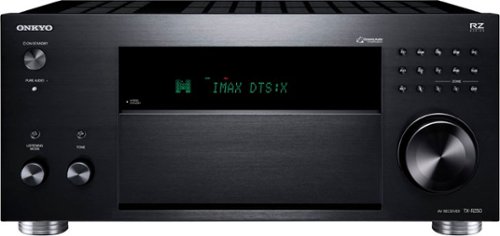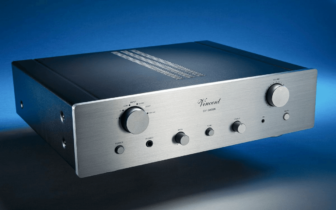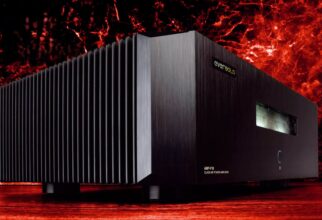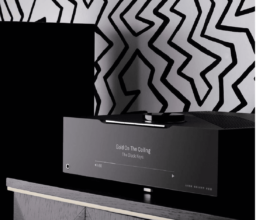ONKYO TX-RZ50 Review: The BEST RECEIVER for Home Theater?
Onkyo’s second-from-the-top AVR is a nine-channel movie-lover with a healthy selection of bonus features, says Mark Craven. Read our ONKYO TX-RZ50 Review.
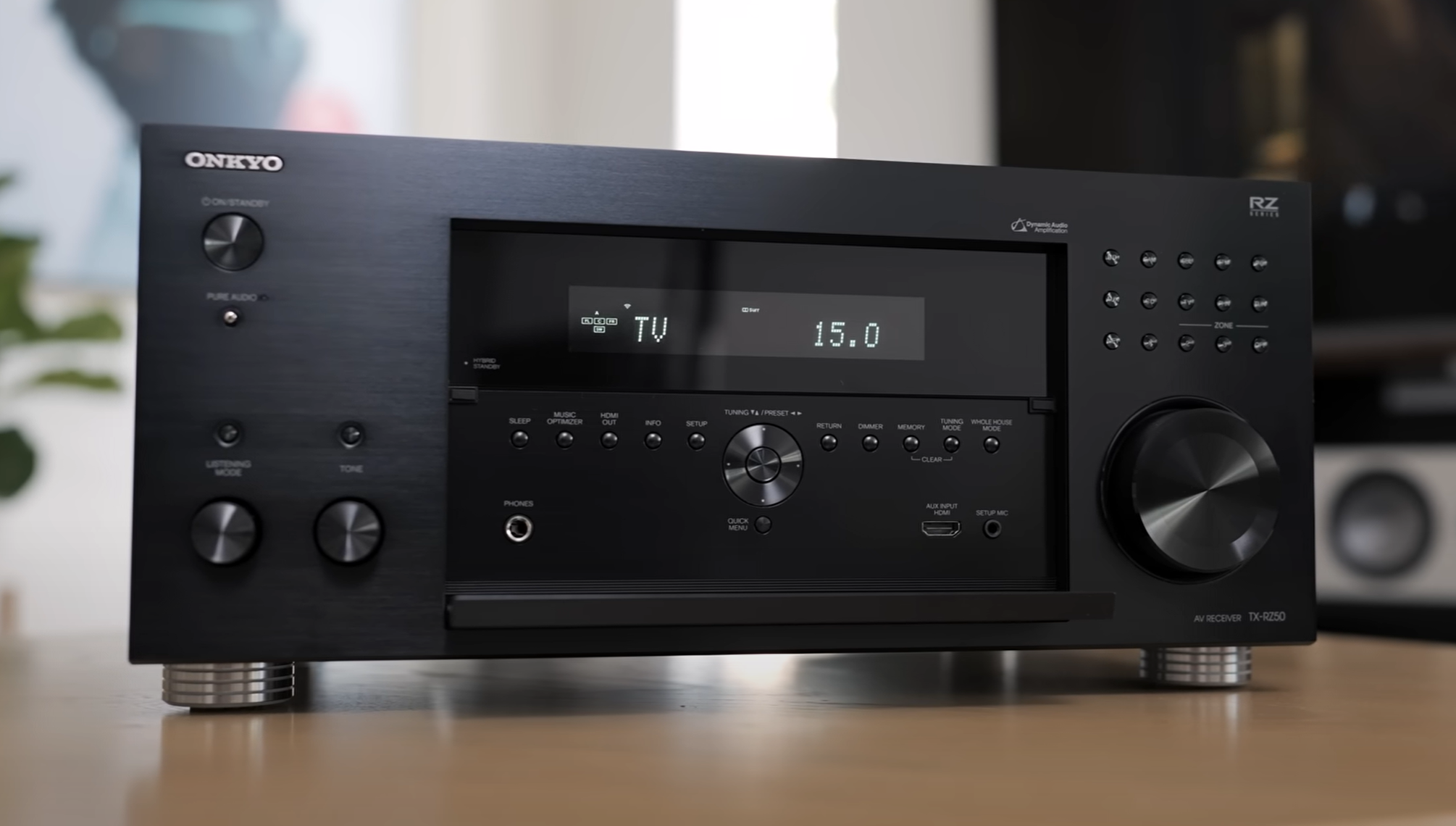
ONKYO TX-RZ50 continues the brand’s ethos of taking the basic notion of an AV receiver and adding many bells and whistles. Yet this isn’t a budget model. Although the more affordable of the two top-tier AVRs in the brand’s stable, it costs £. The good news for Onkyo is that it still feels like good value for money.
Due to the recent corporate machinations surrounding Onkyo, the ONKYO TX-RZ50 is new to the UK but not fresh from the factory – it was first announced in 2021. This means if it were a TV, it would be deemed old hat, but the AVR market – beset by issues with the production of HDMI chipsets and other factors -hasn’t moved at a striking pace in the last few years. Subsequently, the ONKYO TX-RZ50’s specification looks up-to-date.
For example, this is a model with HDMI 2.1 connectivity onboard, albeit only on three of its seven inputs. Dolby Vision and HDR10+ passthrough are provided, as is support for VRR, ALLM, and QFT gaming features, plus eARC.
AV Info
| PRODUCT: | Nine-channel Atmos/DTS:X receiver with Dirac |
| POSITION: | One rung below Onkyo’s RZ70 flagship |
| PEERS: | Denon AVR-X4800H; Yamaha RX-A4A |
| WEBSITE: | https://onkyo.com/intl/receivers/av-receivers/tx-rz50 |
Hidden away
The amp’s design differs from the more affordable TX-NR6100 and matches Onkyo’s recently announced TX-RZ70 flagship. There are plenty of visible front-panel buttons, although some controls, plus a mic, headphones, and an HDMI input, are concealed behind a pull-down door. The brushed aluminium fascia is fetching, although the overall look is a bit ‘boxy’.
The RZ50’s remote is arguably unbefitting of a receiver at this price point. It’s the same handset supplied with the NR6100, and its lightweight feel doesn’t match the more robust nature of the amp itself. A more premium zapper is included with the RZ70, and it would be nice to have that here, too. Oh well.
Like the TX-NR6100, this is proclaimed a ‘Smart AVR,’ which carries an array of wireless connection options, from DTS Play-Fi to Chromecast and Apple AirPlay. It’s also Roon Tested. Should you be running the music curation playback platform, there’s two-way Bluetooth, wired, and Wi-Fi networking. Setup to your network can be managed via the Google Home app, and -once logged in through Onkyo’s Controller app – you can view streaming services via your TV display, using the handset to navigate. It’s pretty slick.

Nine-channel challenger
The power rating of the RZ50 is 250W in each of its nine channels, but as with all of Onkyo’s models, this is a 6ohm measurement into one channel, with a high (10%) THD. Better to approach it from its 8ohm, two-channel, 0.8% THD measurement of 120W and scale down ultimate power expectations from there. Onkyo’s discrete Dynamic Audio Amplification output stage is fed by a custom ‘low-noise, high-current’ transformer and custom capacitors adjacent to an aluminum heat sink to maintain operating temperature.
The nine-channel amp stage outputs via binding posts are variously labeled for support of 7.1.2 or 5.1.4 systems or setups with Zone 2/3 audio or bi-amping. Next are numerous non-HDMI connections, including component (‘we still have some customers using component-based satellite receivers’, Onkyo tells me) and MM phono for a turntable.
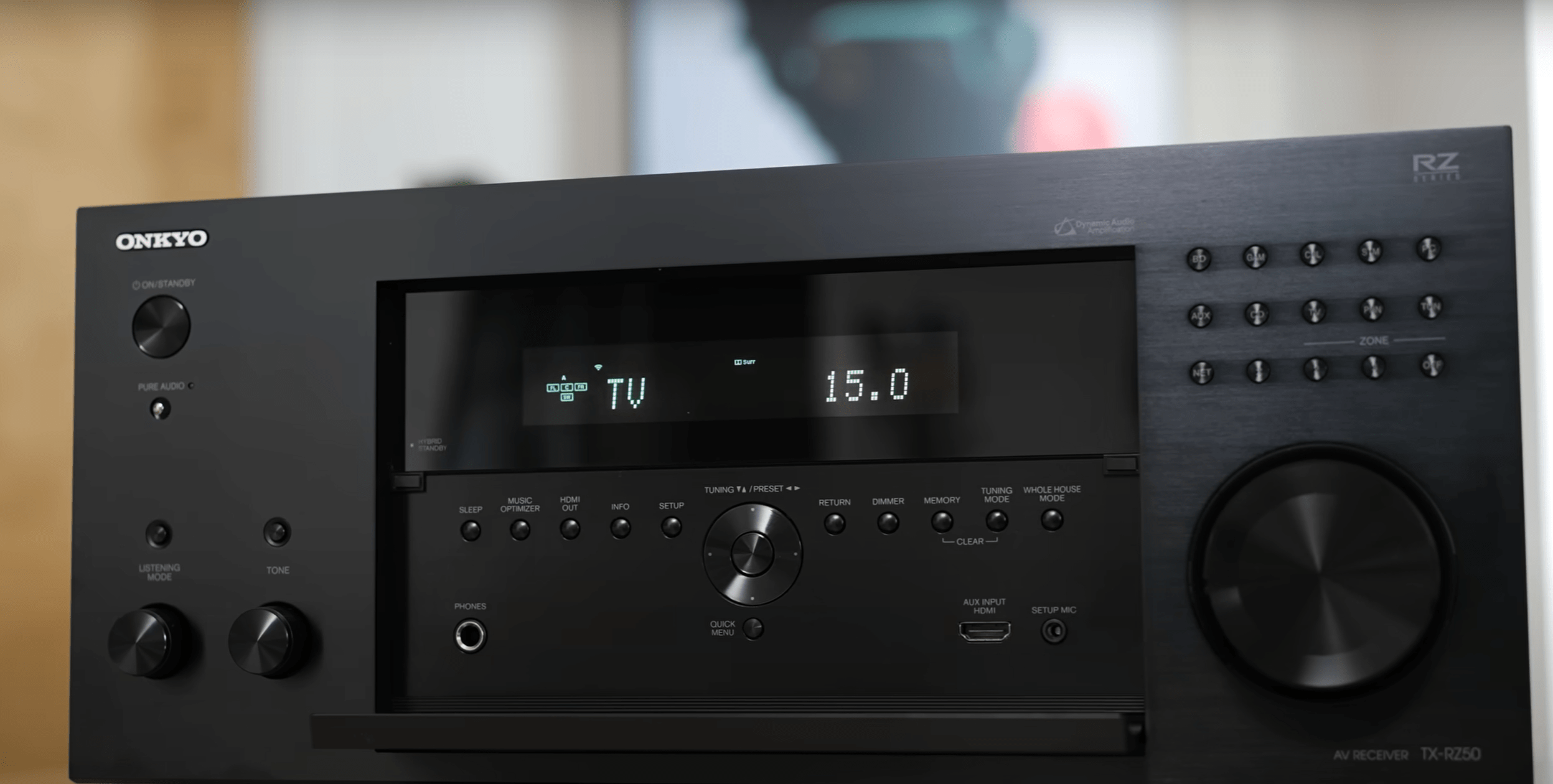
Where the RZ50 stands out from the competition is its implementation of Dirac Live. Adopting this third-party room correction tool has expanded from high-end (Datasat) to the mass market, so Onkyo now joins Pioneer, Denon, Marantz, and Arcam in the field. The RZ50, however, delivers the full Dirac Live (20Hz to 20kHz) out of the box; some rivals only integrate the base (sub-500Hz) iteration or ship Dirac Ready for the end user to add the upgrade via a license purchase. Moreover, Onkyo’s receiver can run Dirac from a laptop or a smartphone app (using the supplied microphone, not the one on your handset). Some will find it preferable to bring a computer into their movie room.
‘ A great sense of control, widened dynamics and a stronger bass response across the speaker array’
There’s still the option to use Onkyo’s quick-fire AccuEQ platform, but as this is less advanced and the results less impressive, I can’t see any RZ50 owner choosing this over Dirac.
Going large
Auditioned not long after the TX-NR6100, this costlier receiver makes an interesting comparison. Listening to music and movie material, it’s easy to discern a sort of Onkyo ‘house sound’, but the RZ50 ups its game. There’s a greater sense of control, widened dynamics, and a stronger bass response across the speaker array.
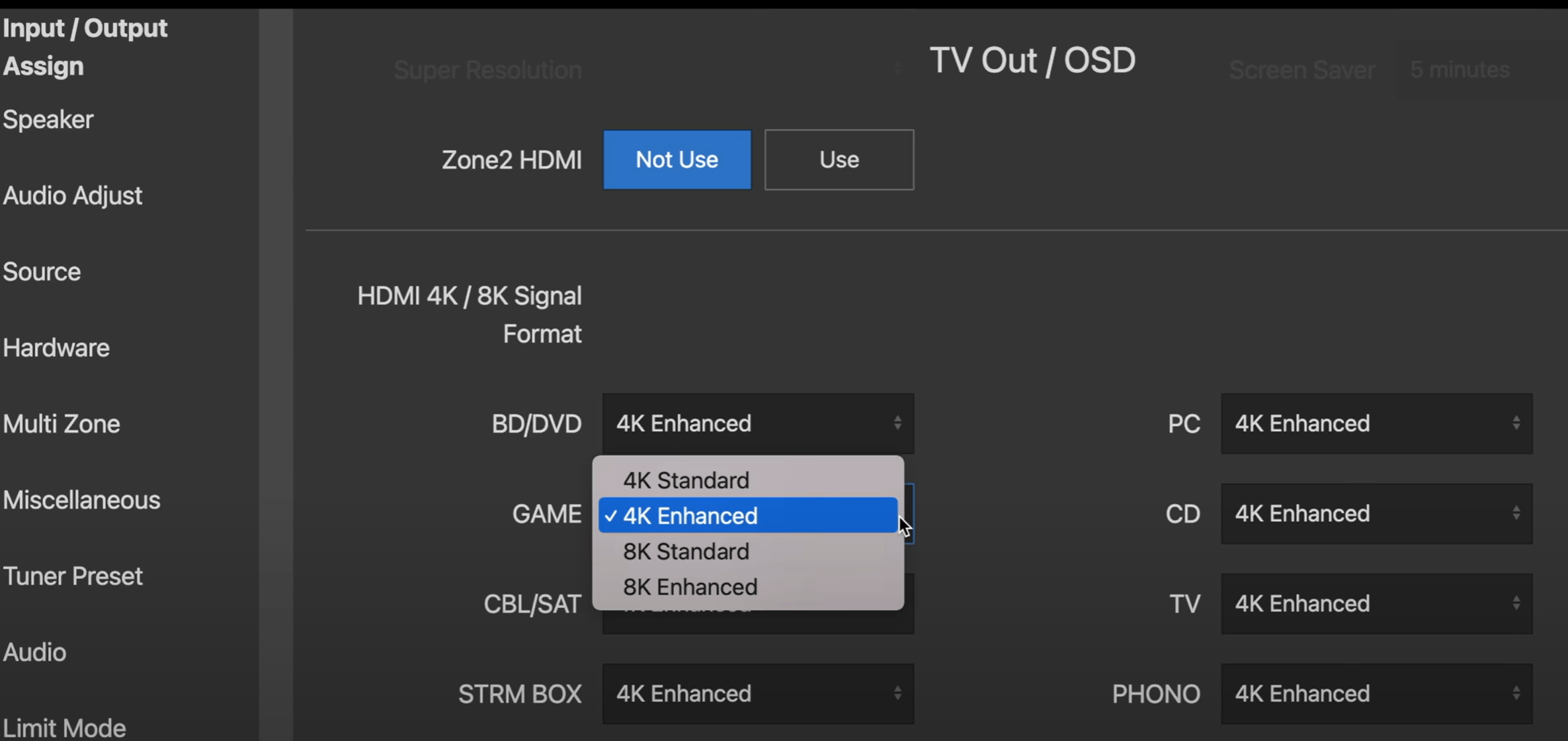
Compared to some rivals, there’s a bit of an edge to its presentation of impact sounds at and above this price point, with the RZ50 landing on the attacking end of the spectrum. This wasn’t an issue with the KEF R Series Meta 5.1.2 array I used (plus a B&W 705 S2 pair on rear surround duty), but it might make it slightly fatiguing with brash-sounding budget models.
Post Dirac calibration (via the app), Onkyo’s receiver spun a large, wide, and cohesive Dolby Atmos soundstage with a gutsy low-end and plenty of snappy detail. It was well-suited to Bullet Train’s frenetic, stylized audio (Sky Cinema). The film’s credit sequence is backed by a stonking Japanese cover of The Bee Gees’ Stayin’ Alive while Brad Pitt walks the busy, bustling streets of Tokyo at night.
The sound design is layered and expansive, with background crowd noises swirling around Pitt’s dialogue and that of his phone call companion, and the RZ50 painted a lively, detailed picture. And while it’s all rather serene, when the soundtrack explodes with a passing truck or a bellboy plummeting from a hotel window into a car roof below, the dynamic nature of this AVR is thrillingly apparent. >
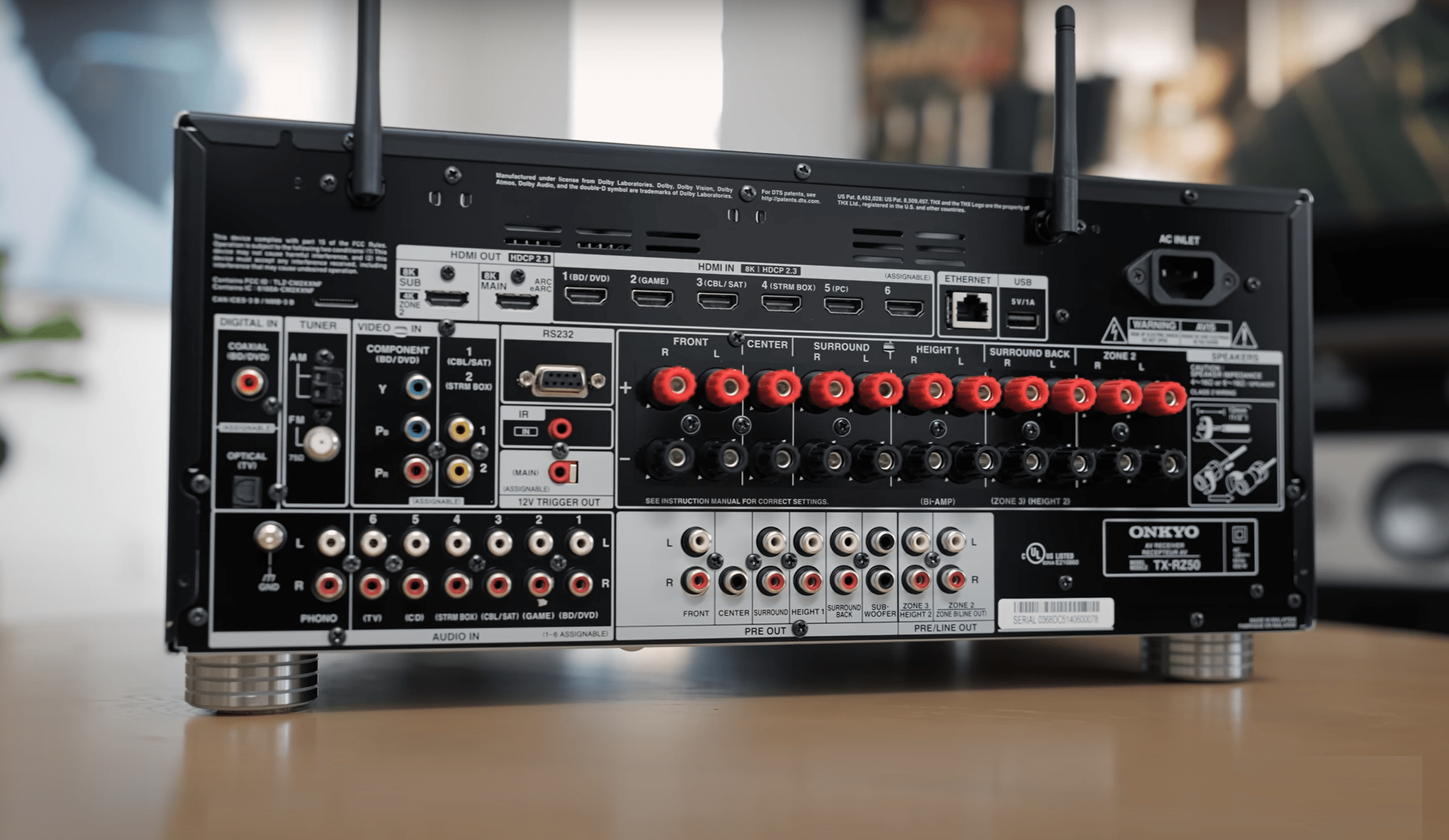
When we’re introduced to The Wolf (Benito A. Mart^nez Ocasio) he’s accompanied by latin music with crisp highs and, again, an impressive undercurrent of rich bass. The soundfield becomes more focused as the knife fight begins in the train carriage, with each hit of blade against Pitt’s metal briefcase eliciting a high ping. These don’t quite ring out with the airy, smoothness you might hear from a more accomplished receiver or processor, but are sharp and to the point. And the sound design here bounces around the room as the protagonists onscreen do the same.
There’s a more spooky, atmospheric bent to the DTS:X mix on Harry Potter and The Goblet of Fire (4K BD) as the wizards navigate the mist-shrouded maze. The ONKYO TX-RZ50 needs to be more deft here, and it obliges with gentle, soft effects that stand free of the physical speakers, seeming to emanate from each corner of the room. Again, though, it’s how it leaps confidently into action when Cedric is suddenly attacked by a hedge that earns the biggest grin.
Throughout the movie, the orchestral score (not by John Williams this time around) is conveyed with weight and texture to the low strings and brass and space around the various instruments. It’s stirring and evocative.
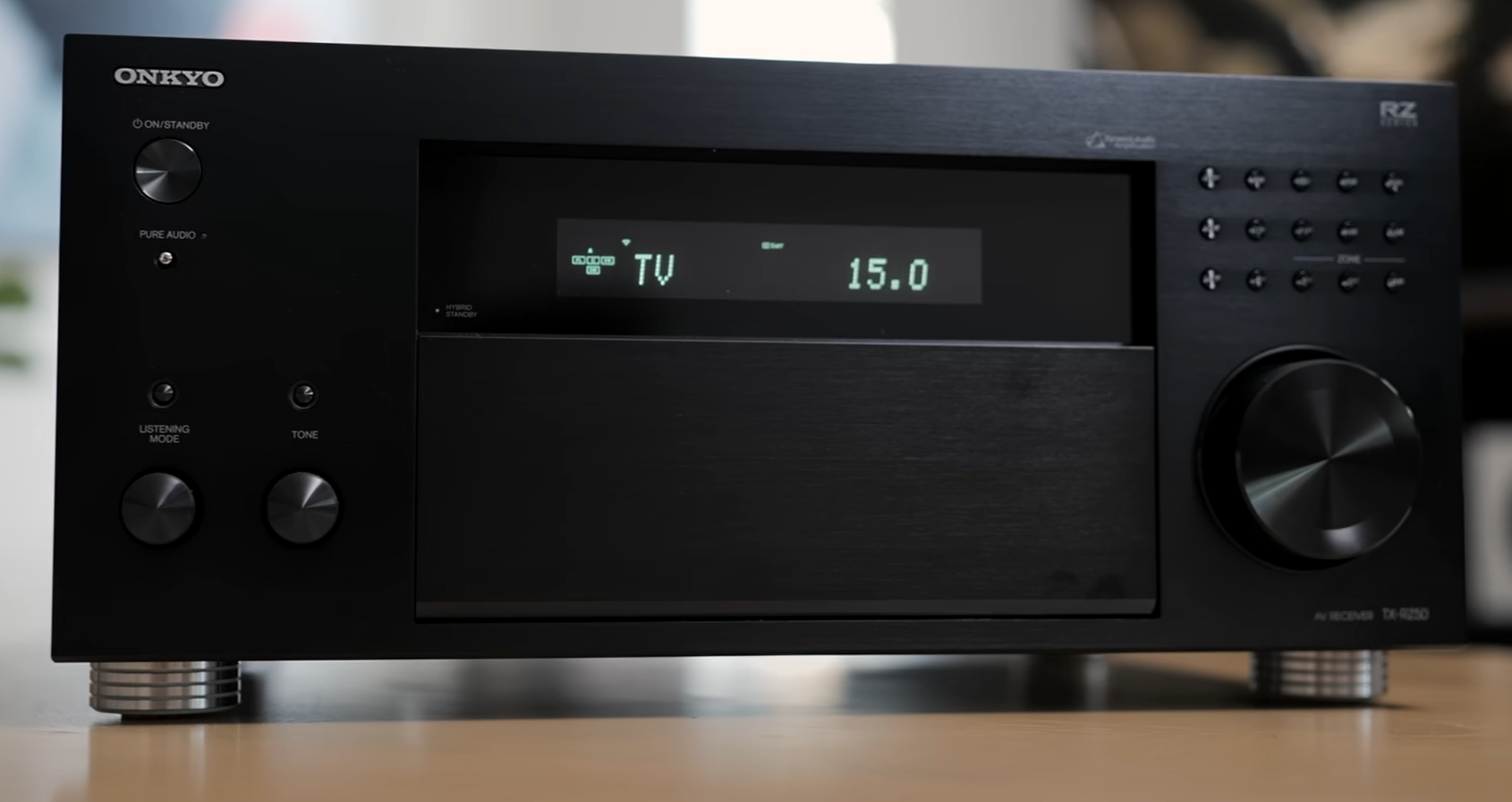
For two-channel music listening, the receiver’s Pure or Direct Modes are perhaps the way to go, as both disable processing (the former also shuts down the display and the analog video circuits), but note that Dirac is also disabled with both).
In Pure mode, the ONKYO TX-RZ50 put on a fulsome, punchy, and largescale performance with KEF’s R5 Meta floor standers. Aerosmith’s ‘Same Old Song and Dance’ (CD) was given a well-rounded and extended bassline, and Joe Perry’s guitar
ONKYO TX-RZ50 TECH SPECS
| DOLBY ATMOS: | Yes |
| DTS:X: | Yes |
| IMAX ENHANCED: | Yes |
| MULTICHANNEL INPUT: | No |
| MULTICHANNEL PRE-OUT: | Yes. 11.2-channel |
| MULTICHANNEL OUTPUT (CLAIMED): | 9 x 120W (8ohms, 20Hz-20kHz, 0.08% THD, two-channel) |
| MULTIROOM: | Yes. Zone 2/3 |
| AV INPUTS: | 2 x digital audio (1 x optical and 1 x coaxial); 6 x analogue stereo; component and composite video in |
| HDMI: | 7 x inputs and 2 x outputs |
| DIMENSIONS: | 435(w) x 201.5(d) x 398(d)mm |
| WEIGHT: | 14kg |
| FEATURES: | Certified THX Select; Dynamic Audio Amplification; Dirac Live (20Hz-20kHz) with app setup; AccuEQ calibration; FM/AM/DAB tuner; dual subwoofer outputs; MM phono stage; 6.35mm headphone; Ethernet; Wi-Fi; two-way Bluetooth; tone controls; HDMI 2.1 on three inputs; Apple AirPlay 2; Chromecast; DTS Play-Fi; Onkyo Controller app; 192 kHz/24-bit DAC |
TESTED WITH
BULLET TRAIN: Coming across a bit like a live-action anime, this Brad Pitt hitman action/comedy, as is its AV presentation, is a real blast. Sony’s 4K Blu-ray delivers an incredibly refined (and Dolby Vision-graded) image with gorgeous color and HDR enhancements, while the Atmos soundtrack rocks. All aboard!
playing was biting and distinct. Better yet was the wash of high-energy sound it evoked with Paul Van Dyke’s trance anthem For An Angel (Tidal stream), which turned my room into a nightclub.
Take me for a spin
This is an accomplished receiver from Onkyo, not just in specification terms but in its lively performance, which showcases strong dynamics and steering. It’s not the final word in smoothness, and the supplied remote could be better, but the Controller app is a decent alternative, and the inclusion of full-fat Dirac Live (again with an app) sweetens the deal. At this price, it begs to be auditioned!
Verdict
When you purchase through links on our site, I may earn an affiliate commission. Here’s how it works.



